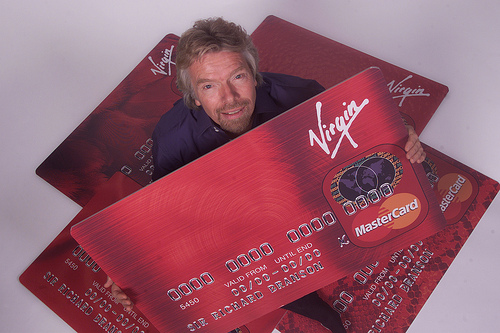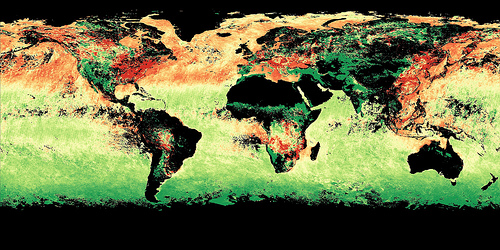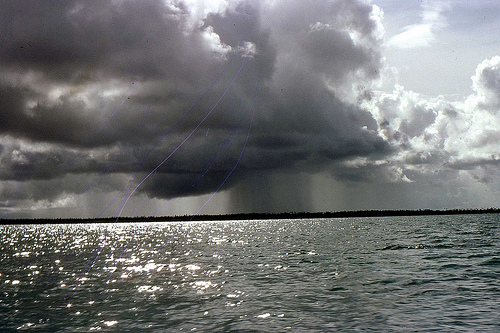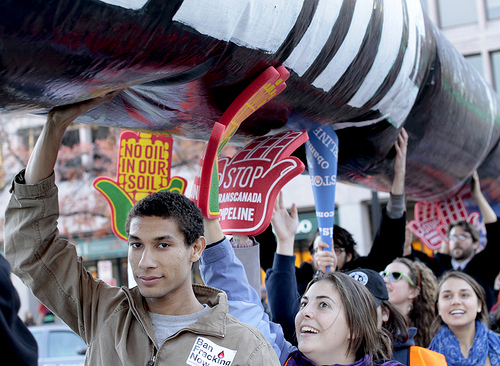How the Luxury Market Defied the European Crisis
We are living in times of austerity: Economies all over the world are experiencing slower growth, and half of the eurozone economies are expected to shrink this year. In fact, not one major European country is expected to grow over...
How Can Virgin Money Shake Up the UK’s Banking Sector?
There is a new bank on UK's High Street. While Virgin Money has been around since 1995,the company only came into serious prominence when it finalised the deal to acquire troubled bank Northern Rock on the 1st of January this...
Are Corporate Values Still Relevant, or Clichéd?
Google has it. Microsoft, too, has it. Virgin, eBay and many other successful companies, they all have it. Corporate values, that is. While the term ‘corporate values’ has lost its buzzword status in recent years, it remains a key...
Green growth or de-growth: What is the best way to stop businesses destroying the biosphere?
The world’s major 3,000 corporations are responsible for a third of global environmental damage, but economists are divided in their views of how to stop them polluting. Some say government regulation, allied to promoting the business case, is the answer....
Fake Highs, Real Risks: The Dangers of “Legal” Synthetic Drugs
Powerful and unpredictable synthetic drugs that mimic the effects of marijuana, cocaine, and other illegal substances, are leaving a trail of paranoia, hallucinations and death across the US. Dr Mark Ryan, the director of the Louisiana Poison Centre, has never...
How Technology Is Revolutionizing Services: Jeffrey D. Sachs
The costs of services need no longer be linked to the cost of goods. A sharp decline in the costs of health care, education, and other services is now possible, thanks to the ongoing revolution in information and communications technology....
Tensions Brew In The Caspian Sea With Russia’s Latest Move
Since the collapse of the USSR in 1991, the nations that border the Caspian Sea – namely Russia, Iran, Azerbaijan, Turkmenistan and Kazakhstan – have quarrelled over how to properly divide its waters. With as much as 250 billion barrels...
Barely A Year After Fukushima, IEA Says: Embrace Nuclear
The latest report from the IEA is not going to please environmentalists. Accordingly, the IEA admonishes governments for not fully embracing renewable energies – including nuclear energy. But to be fair, there is a desperate need to focus on nuclear...
Fracking Hell: Hydraulic Fracturing Confirmed As Cause For Increased Earthquakes In US
Hydraulic fracturing, or “fracking” as it is otherwise known, is the process by which pressurized water is used to fracture rock layers thus releasing petroleum, natural gas, or other substances so that they can be extracted. But while oil and...
Dirty Oil, Dirty Tactics – The Keystone XL Pipeline: Jody Williams & Desmond Tutu
If the Keystone XL pipeline, which would run from Alberta, Canada to the Texas coast, goes forward, it would spell disaster for efforts to combat climate change. But defenders of the pipeline are using dirty tactics to promote dirty oil....
Egypt’s New Wind of Change
Wind power may currently only contribute to less than 1 percent of Egypt’s energy output, but most experts believe that it has the potential to meet the nation’s energy needs. The largest bottleneck thus far to expanding Egypt’s wind power...
America’s Unhealthy Obsession With The Idiot Box: Jeffrey D. Sachs
The US is a nation of vidiots – idiots raised through an unhealthy diet of television and mass propaganda. Ever since America’s love affair with the television set began in the early 1960s, there has been a slow but gradual...
Europe’s Old Bank Business Models Are Obsolete: Gene Frieda
Eurozone’s outsized banks are highly leveraged and dependent on large quantities of wholesale debt. According to Barclays Capital, the 15 largest banks increased their returns on equity by 58 percent between 1998 and 2007, with 90 percent of the gain...
Even Israel’s High-Tech Sector Struggles to Make Solar Power Cost Effective
As a consequence of the global recession that began in 2008, prices for photovoltaic solar panels worldwide have receded. The failure of the US federally subsidized company Solyndra, for instance, has also put a damper on the solar power industry...
Is Monsanto Using Us As “Human Guinea Pigs”?
Nearly all research into GM (Genetically Modified) foods is funded by Monsanto, or other bio-tech companies, meaning truly independent data is rare. Some scientists claim only GM foods can feed the world’s booming population, but others say we are only...


















